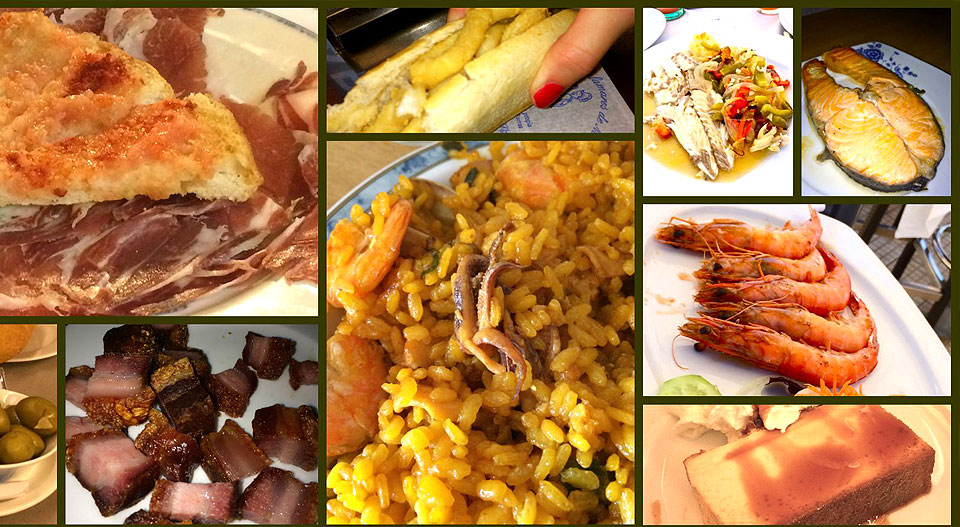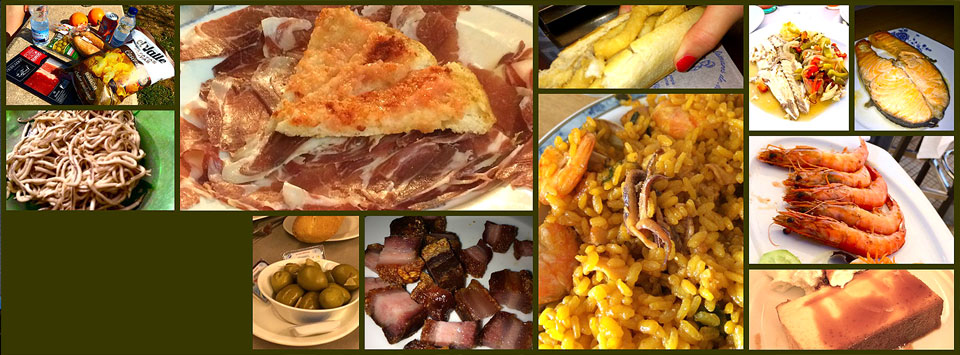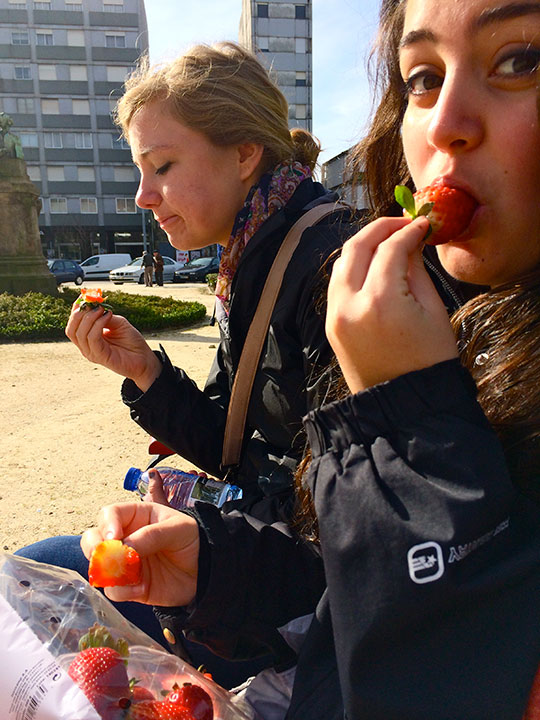

One of the best parts of traveling is eating the food. The official term for this is ‘gastronomy,’ but really, it’s just a fancy way of saying stuffing your face and not feeling guilty about it. Believe me, Spain is perfect for this indulgence. Officially, we’re immersed in a true Mediterranean diet full of fish, vegetables, bread, oils and wines.
 Instead of giving you a plethora of my opinion on how great Spanish food is, I want to introduce you to a dietetics major currently on the trip. Jessica Becker is a sophomore and studying both dietetics and Spanish at UW-Stevens Point. We grabbed a café one day and chatted about her experiences with the Spanish gastronomy and how it related to what she is studying in the dietetics program.
Instead of giving you a plethora of my opinion on how great Spanish food is, I want to introduce you to a dietetics major currently on the trip. Jessica Becker is a sophomore and studying both dietetics and Spanish at UW-Stevens Point. We grabbed a café one day and chatted about her experiences with the Spanish gastronomy and how it related to what she is studying in the dietetics program.
No matter how much one loves food, it still takes time to adjust to a new diet. Jessica recollected that it was hard for her to give up responsibility of cooking her own meals or being directly in control of what she would eat at each meal. Although there are times where the meals aren’t ideal, she says “I was surprised at all the variety. All you hear about is paella and tortilla española from Spain, but I eat so many different things; from oysters, to pastas, to vegetables; it wasn’t expected.” When I asked her what shocked her most about the diet, I was expecting her to tell me about the shrimp with eyes, fully dressed oysters, cured jamón, or the incomprehensible amounts of bread we’re served. But she surprised me with a reflection of the attitude towards eating that she’s observed. “I see women in cafes drinking regular soda, eating big sandwiches. Women in the U.S. have become so preoccupied with diet soda and salads, yet the women here are thin and indulge.” She observed that the Mediterranean diet is more of a lifestyle, not just a fad. While many Americans are looking for the fastest, easiest, cheapest solution to weight loss issues, they fail to realize that the best solutions lie in a full lifestyle adaptation. “The Mediterranean diet includes sit-down meals with family, walking form place to place for fresh tapas, and laughing and conversing with friends. It’s a full-impact view on health.”

It comes as no surprise then how healthy many Spaniards are, we definitely don’t see many overweight people walking the streets. In Jessica’s research for her semester thesis on dietary customs, Spain’s diet is linked to a longer life span for both men and women, reduced risks of hypertension, type II diabetes, high cholesterol, obesity, Parkinson’s and Alzheimer’s. Of course it’s not all golden, Spain is suffering from the same issue of childhood obesity trends as well. Jessica considers the customary breakfast of small, sweet pastries as one factor that could be improved to help combat this problem.
Jessica thought back to some of her Food & Nutrition classes she had taken before the trip and how she’s seen them reflected in her experiences here. In her culture classes, learning about the seven aspects of the Mediterranean diet reminded her of concepts in FN 253 and FN 206, “It’s not that difficult (following the Med. diet). Americans are always looking for something new, we buy into everything … the latest berry that cures all. Here, they just follow what’s always been done; a diet that’s been eaten for thousands of years … and it works!”
Jessica’s a bit of a strange one on this trip for her major combination. As the only dietetics and Spanish major on the trip, I asked her how she thought this trip was going to serve her in the future, and if having second language skills will help her in her future. “My goal with Spanish is to be able to reach a whole other community of patients, with Spanish I’ll be able to reach them on a more personal level and have a positive impact.” She also expressed personal development progress typical for anyone who studies abroad in a different culture, “I’ve learned so much about myself … I’m more independent and confident with my communication skills.” We joked about how we’ll rarely be apprehensive to chat with random people or ask for directions again.
When I asked her about her long-term graduation plans, she agreed that studying abroad set her back a semester. “But I’d never second guess this experience. Having a double major and knowing a second language will put me ahead in my career when I’m done.” Her enthusiasm for her studies is apparent. For many students on the trip they have been set back a semester, but for many others (including myself) it fits in just fine. When asked if she would recommend a second language as a second major option she jumped to say, “Yes, to anybody! So many people question my major combination. Learning a second language is good for any career, especially a language common in the U.S. You have it for the rest of your life and can be connected to so many more people; it can take you many places.”
So, Jessica, what’s your favorite food? “I can’t pick!”
For more information on the dietetics program in the School of Health Promotion & Human Development, visit the website. To view upcoming the International Programs offerings, dig into their site. And for adding a language to your studies, you can find more information in the Foreign Language Department.
Hasta luego!
Courtney
Courtney Cerniglia is a senior at the University of Wisconsin-Stevens Point majoring in business administration and Spanish.
